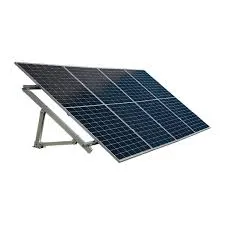Off-Grid 10kW Solutions for Sustainable Energy Independence and Eco-Friendly Living
Embracing Off-Grid Living with a 10 kW System
In a world increasingly dependent on technology and the conveniences it brings, the idea of off-grid living has gained prominence among environmentally conscious individuals and families. The movement towards self-sufficiency, minimalism, and sustainability is not just a corporate trend but a lifestyle choice that many are embracing, particularly with renewable energy solutions like a 10 kW solar power system. This article explores the implications, benefits, and considerations of living off the grid with a 10 kW energy system.
Understanding Off-Grid Living
Off-grid living means living independently from the traditional electricity grid. This lifestyle often entails utilizing renewable energy sources, such as solar, wind, or hydropower, to meet one’s energy needs. A 10 kW solar power system is particularly appealing for those looking to achieve self-sufficiency while reducing their carbon footprint. This system can provide enough power for an average household’s needs, covering everything from lights and appliances to heating and cooling systems.
The Benefits of a 10 kW Solar Power System
1. Energy Independence One of the most compelling reasons to adopt a 10 kW solar power system is energy independence. Homeowners can generate their own power, reducing reliance on local utility companies. This can be especially advantageous in remote areas where electricity supply is intermittent or absent entirely.
2. Cost Savings Although the upfront cost of installing a solar power system can be significant, the long-term savings are substantial. After the initial investment, the ongoing expenses are minimal – primarily limited to maintenance and battery replacements, if applicable. Furthermore, depending on local regulations, excess energy can sometimes be sold back to the grid, creating an additional revenue stream.
3. Environmental Impact Transitioning to a solar power system contributes to a decrease in greenhouse gas emissions. By relying on renewable energy, individuals can significantly lower their carbon footprint, combatting climate change and promoting a cleaner environment for future generations.
4. Resilience Against Power Outages Off-grid living inherently comes with increased resilience against power outages and fluctuations in energy prices. With a reliable solar power system, households can maintain their energy supply during adverse weather conditions or grid failures.
off grid 10 kw

Considerations When Going Off-Grid
While there are numerous benefits to off-grid living with a 10 kW system, it’s crucial to consider the challenges
1. Initial Costs The initial installation of solar panels, inverters, and batteries can be costly. However, understanding the return on investment and potential savings over time can help mitigate these concerns.
2. Energy Storage For systems that are not connected to the grid, efficient energy storage solutions are necessary to ensure a stable energy supply, particularly during periods of low sunlight. Depending on the local climate, homeowners may need a robust battery management system to store enough energy for use during cloudy days or nighttime.
3. Maintenance Although solar power systems are generally low-maintenance, they do require some level of upkeep. Regular inspections and cleaning of panels can optimize energy production.
4. Lifestyle Adjustments Embracing an off-grid lifestyle may require adjustments in how energy is consumed. Increased awareness of energy usage and habits can lead to a more sustainable lifestyle. Simple changes, like using energy-efficient appliances and prioritizing daytime activities, can maximize the benefits of a solar system.
Conclusion
Living off-grid with a 10 kW solar power system can lead to a fulfilling, sustainable lifestyle that emphasizes self-reliance and environmental stewardship. As technology continues to advance and solar power becomes more accessible, more individuals are likely to embrace this lifestyle, paving the way for a cleaner, more sustainable future. Whether it’s out of necessity, a desire for independence, or a commitment to the environment, transitioning to off-grid living could be one of the most transformative choices an individual or family can make.
-
String Solar Inverter: The High-Efficiency Solution for Smart Solar EnergyNewsJul.14,2025
-
Revolutionizing Rooftop Energy with the Power of the Micro Solar InverterNewsJul.14,2025
-
Power Independence with Smart Off Grid Solar Inverter SolutionsNewsJul.14,2025
-
On Grid Solar Inverter: Powering the Future with Smart Grid IntegrationNewsJul.14,2025
-
Monocrystalline Solar Panels: High-Efficiency Power for the Future of Clean EnergyNewsJul.14,2025
-
Bifacial Solar Panel: A Smarter Investment for Next-Generation Energy SystemsNewsJul.14,2025







